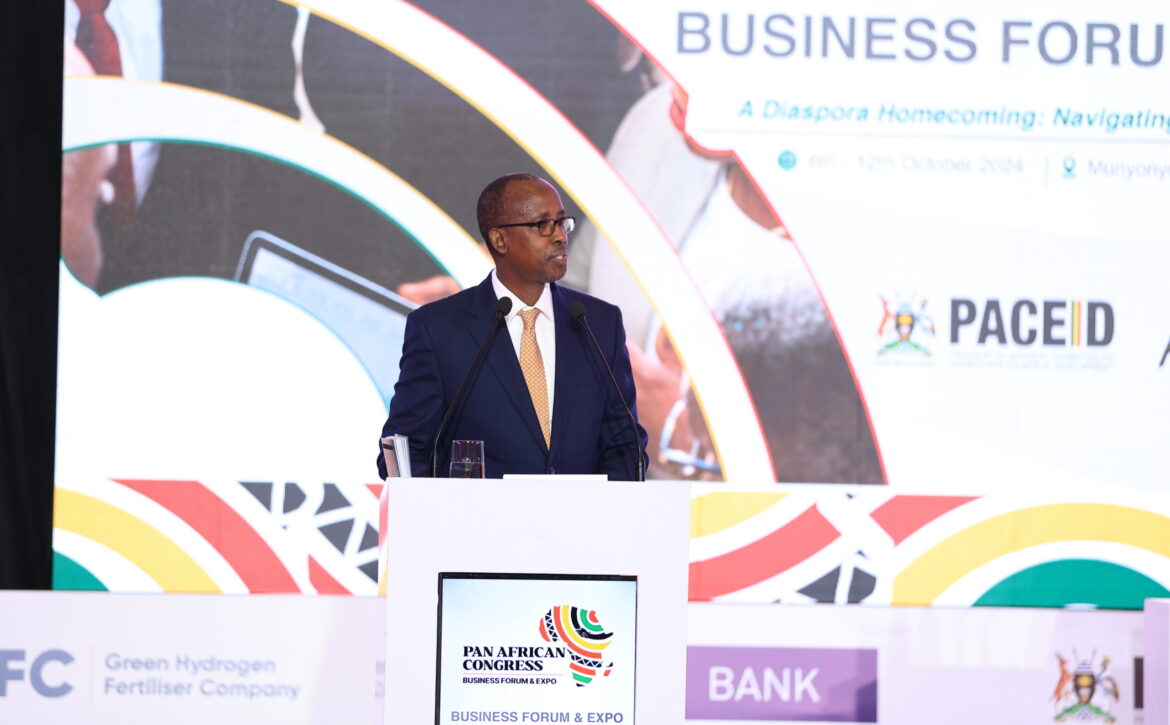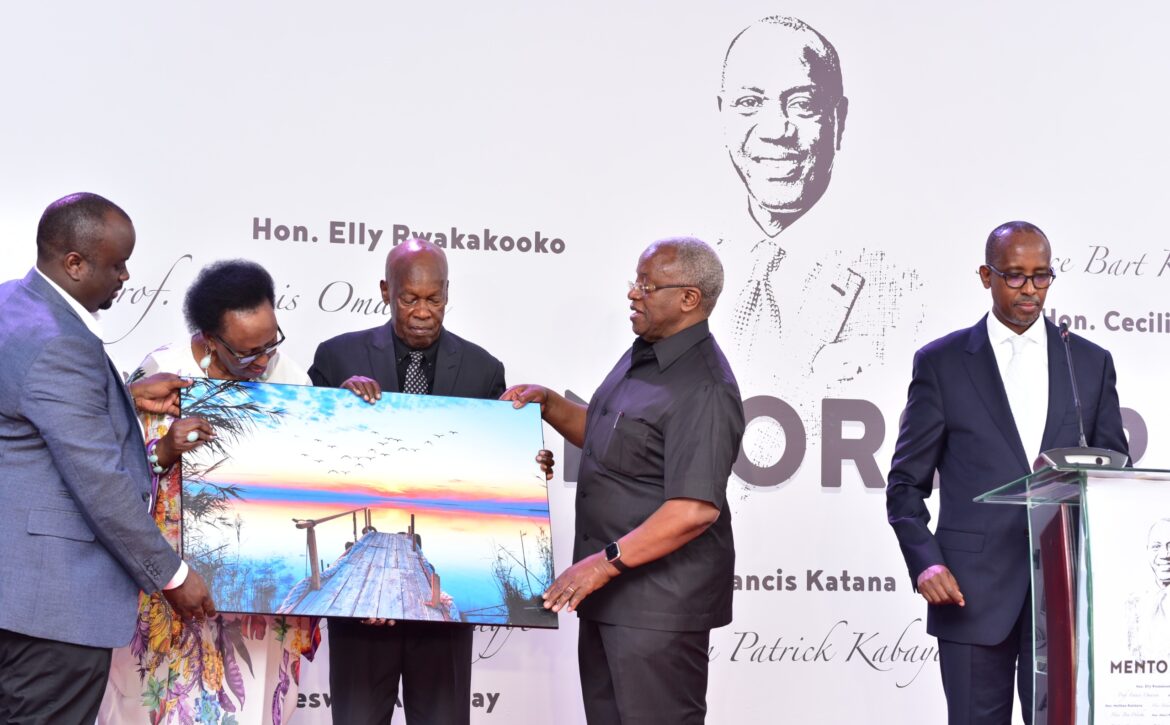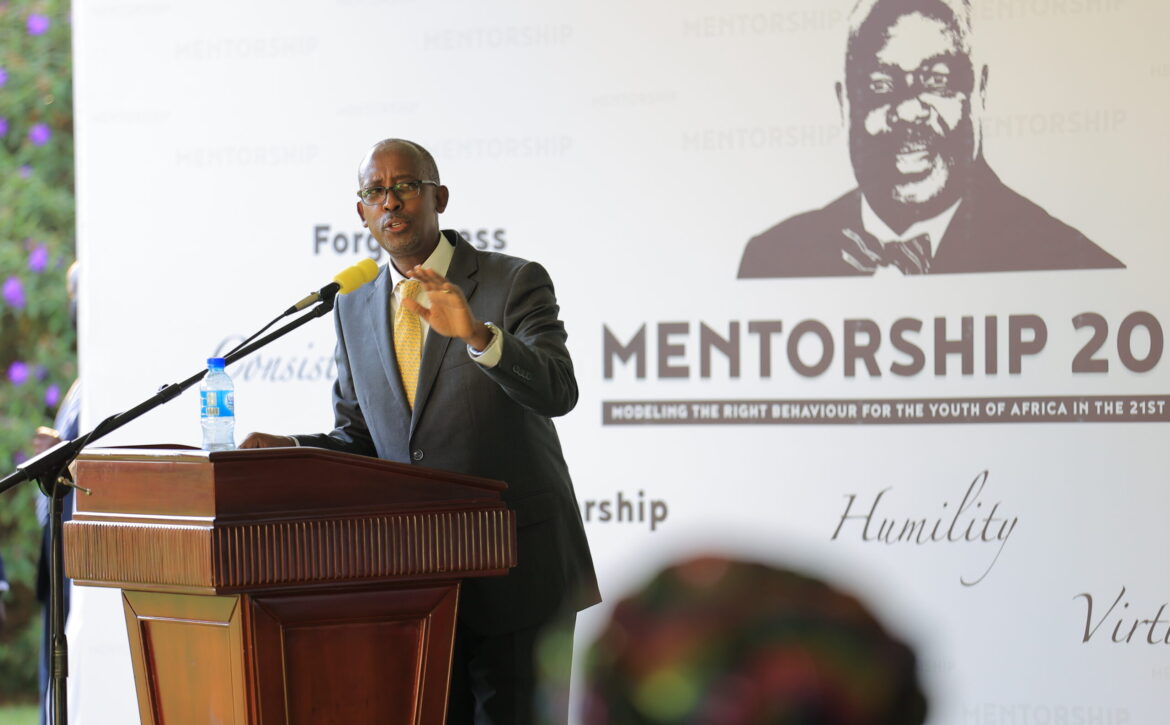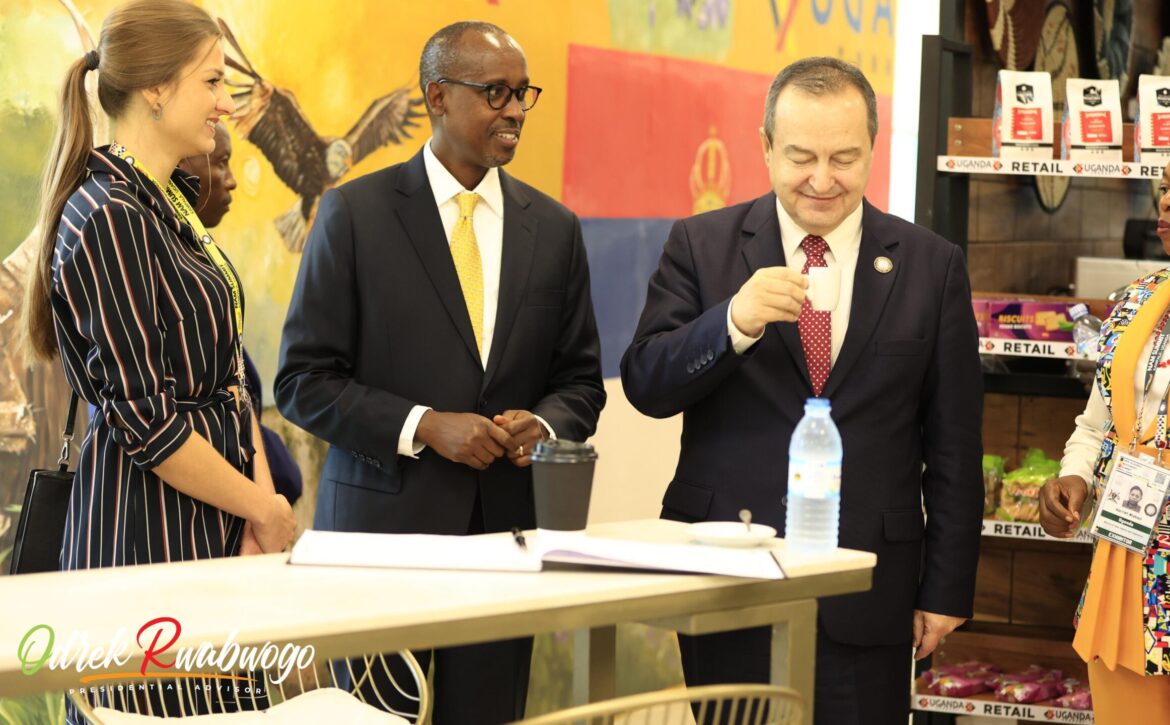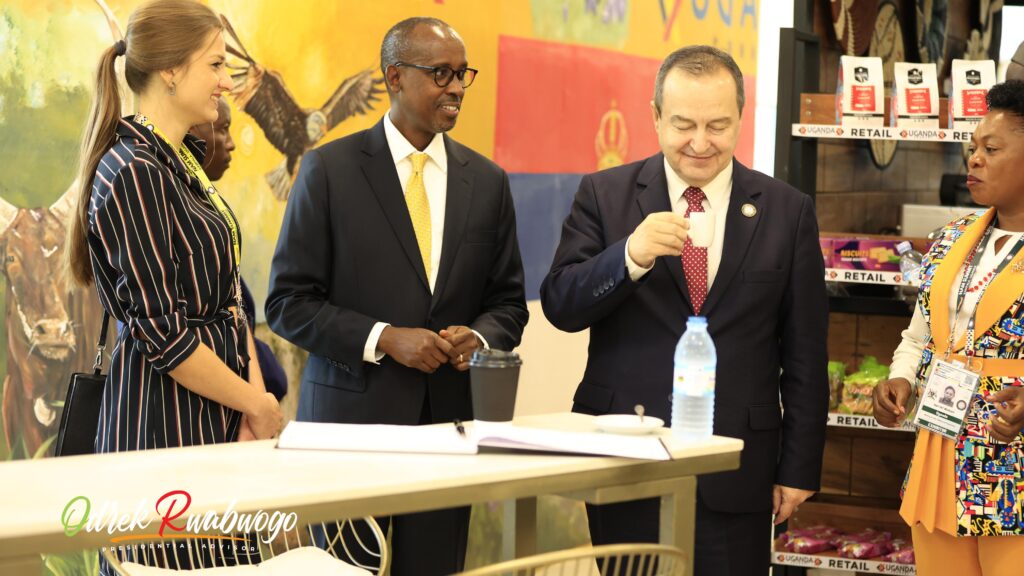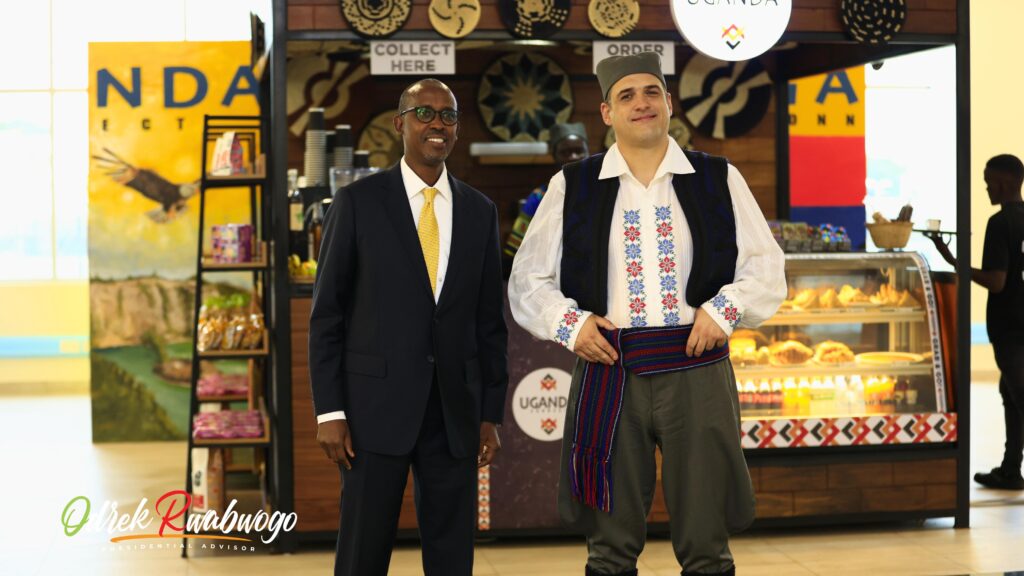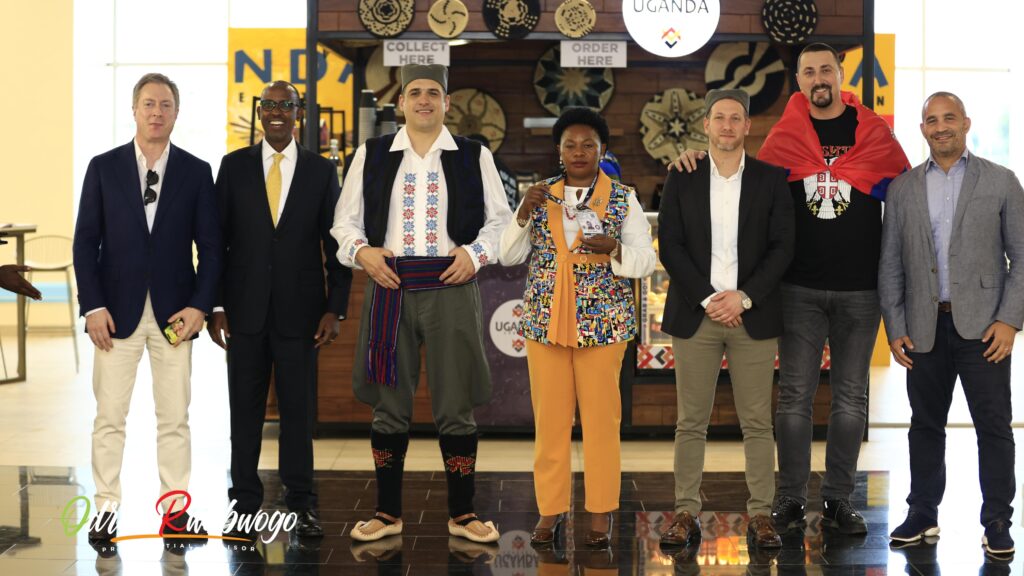Odrek Rwabwogo’s Remarks at the Opening of the Pan African Business Summit
The ministers present and government officials
The Ugandan entrepreneurs
The visiting business delegations of sisters and brothers from the USA
Uganda Trade Representatives
Ladies and Gentlemen who came to participate in the Pan African Congress Business Summit
It was in the middle of winter, December 2022 when Uganda first hosted three back-to-back business summits in one week – in the cities of London, Washington DC, and Chicago. At that time, we were figuring out how to deal with the twin issues of post covid economic recovery and crafting a new message for the country on how to deal with trade and exports as the oxygen that would underpin this recovery. As some of you might know, Asian countries recovered faster on manufacturing than Africa given what many thought would be a difficult return to the old manufacturing and distribution chains the pandemic had disrupted. There was an estimate that up to USD4.9trillion (McKinsey, August 2021) worth of manufacturing, food, pharmaceuticals and transportation, would shift from China to regional centers, East Africa among them. This shift didn’t happen because China had done some good industrial capacity preparatory work and we all returned to them for industrial inputs and consumer goods, instead of taking advantage of this crisis.
We wasted a good crisis; a very important inflection point at which Africa’s regional manufacturing capacity would have been strengthened to endure further shocks and give us better industrial capabilities. Even for America, there was a survey of about 346 firms on whether they would be willing to leave China and return to their home ground even with incentives and subsidies at home. The survey turned up 79% of the companies saying they weren’t prepared to leave China! It shows that economies are planned like raising a child. What you put in early, it will show up later in good or bad ways. Africa hadn’t prepared and we missed an opportunity in this crisis.
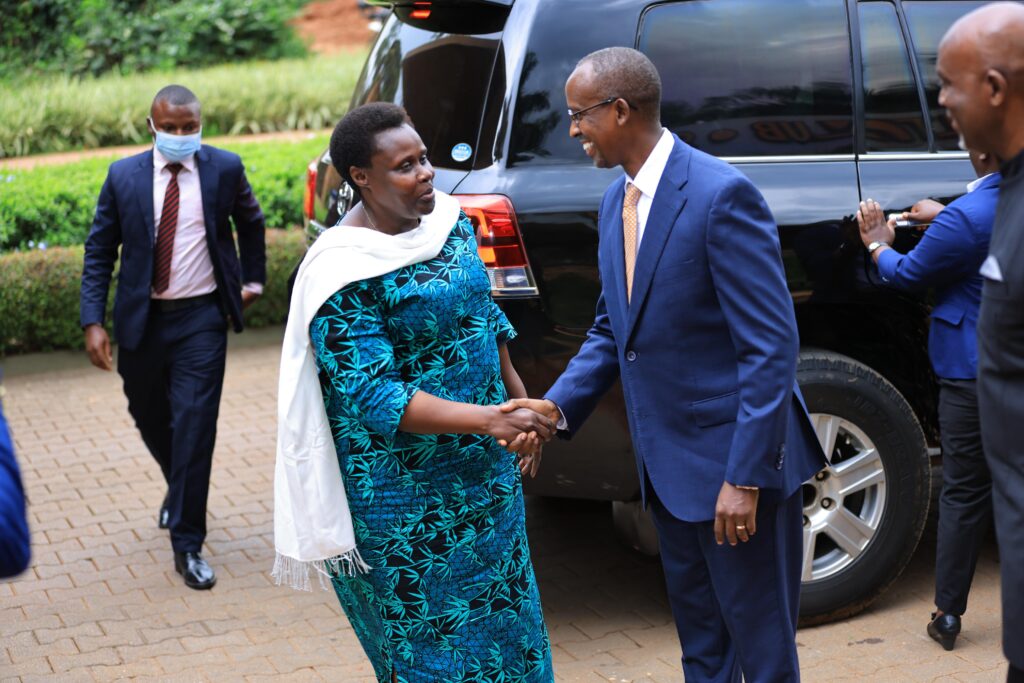
Anyhow, after these marathon business summits in December of 2022; we kept up much pressure on the US market. We held several mini events in Washington DC; we tried to work with some airlines for a possibility to land in Chicago, New York or Atlanta at a future date, reduction of cargo charges to flights in parts of middle east and Africa; we kept up media engagements (Mark Pursey and BTP Advisors are in the room) including meetings with several US based thinktanks, business groups, the House of Congress, State department and many others. This was in order to consistently make a case for our country to be restored to the AGOA opportunity; to deliberately create more understanding with our allies as well as those who tend to misunderstand Uganda and Africa. We have been in Chicago a number of times to find African America allies and work with them, Detroit, Michigan to find off takers of coffee, dried fruits nuts, and banana flour.
I am happy today that we gather in Kampala to begin this annual event (we hope to do this every July) and work under the Pan African umbrella, given the last time we held the Pan African congress was April 1994. We feel strongly that a home is built by both those who travel and learn (the diaspora) and the citizens who (remain and produce). There couldn’t have been a better time to visit Uganda than when we celebrate 62 years of independence and the return of our sisters and brothers’ home!
Why do we do all this and more? Because in a massive global trade of more than USD32 trillion, Africa’s share remains only 3% and even in many areas, productivity of firms and exports has fallen, yet we are surrounded by a rising young population and immense natural resources.
The market of the US for which we are gathered here to build bridges with, is USD18 trillion worth of consumption.
It imports over USD3 trillion in products and services. For a developing country like Uganda to succeed, we got to have presence on this market. To ignore it or simply connect with it only on politics, diplomacy and other areas of partnership, is to miss a good place to begin mindset change on enterprise building. Our SMEs can learn much by having elemental interactions with US firms; our youth and their growing creative and business acumen could be built to an international level and give us future companies with scale. This is why we don’t give up on this market even if politics often interferes. There is no time in life when all is clear; Instead, life teaches us to keep pushing on for what we believe is good for the country and for our enterprises. If you take a look at Uganda and its USD200m worth of trade or the EAC at USD1bn, this is small for the US market. Even all our annual trade as EAC block with the world standing at USD62bn, (equivalent to three financial year budgets for Uganda), all of us are punching below our weight. We can do more and better. This is why we bring our allies this week to have a mature and informed discussion on the possibilities of working together for a better positioning for Africa starting here in Uganda.
I should tell you Africa hasn’t been the same; we have been evolving and for better. It is good that we remain optimistic about the direction even if we might have questions about the pace of progress.
Let’s take a look at these maps:
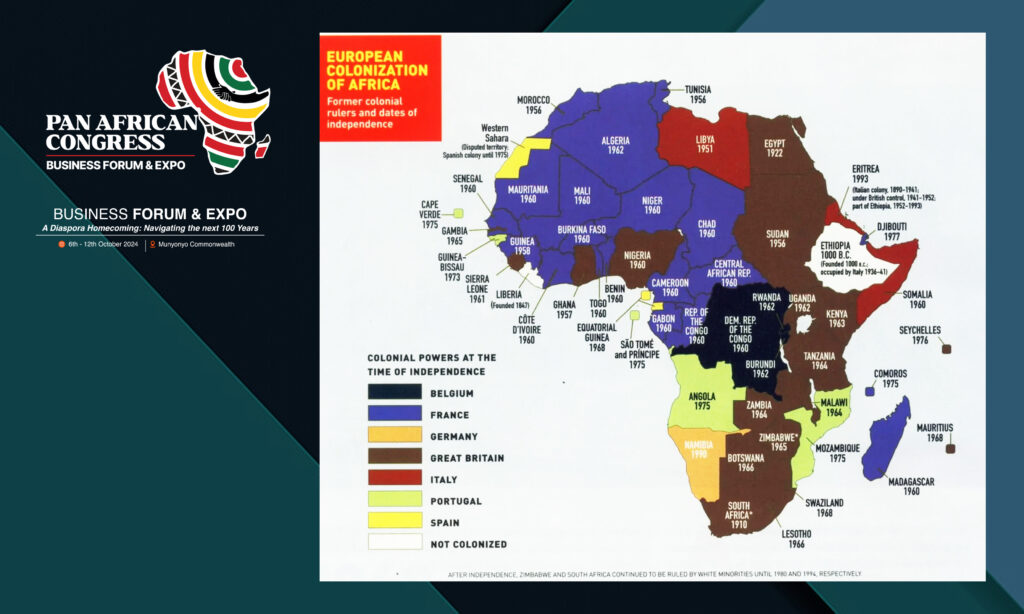
Map one: Africa has no agency, no decision making and it is a society of Four classes:
-Sons of chiefs and priests who would be instrumental in strengthening the colonial state,
-Illiterate soldiers commanded by colonial officers who carried out coups and caused instability
-Few Afro-Asiatic and Lebanese entrepreneurs on the coasts and in some pockets in the hinterland
-Massive numbers of peasants, in Uganda more than 96% when I was born in 1969.
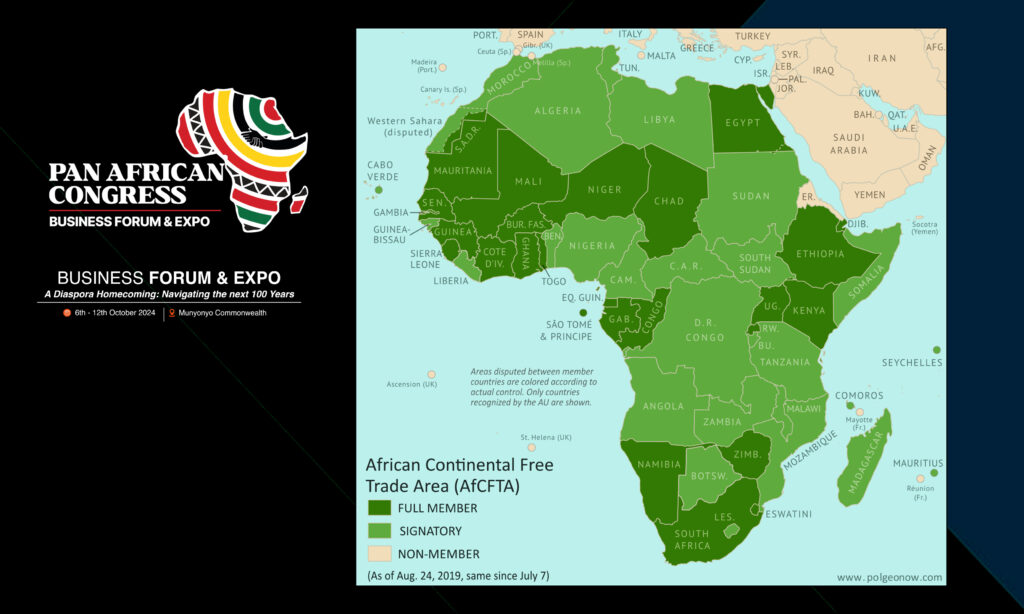
Map Two: An Africa beginning to understand where the drivers of prosperity come from – The Market and reducing trade barriers, removing suspicion and letting the private sector speak directly to each other on the market.
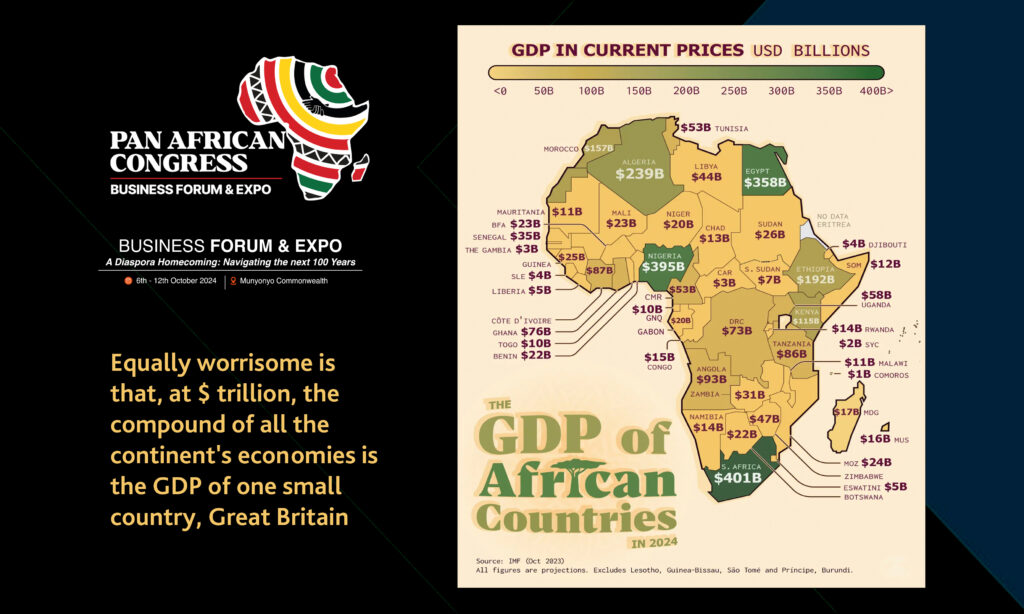
Map Three: An Africa optimistic, aiming at USD30 trillion worth of GDP by 2050. Uganda aims at USD100bn worth of exports by this time as we approach a century as a country.
Yes, we still have very high transaction costs on account of:
Land borders – 107 that require 57,000 kilometers of roads, bridges and highways to connect 54 countries. Only 60% is complete in various shapes and forms and 40% including power lines, interest cables, all needs funding of up to USD100bn for some years to come in order to make this a competitive infrastructure compared to Asia, EU and USA. This too is an opportunity in infrastructure funding on pay per user basis.
Rail of 75,000kms for a land surface of more than 30 million square kilometers translating to 2.5km per 1000sqkm of population density of population. Asia is 23km for every 1000 square kilometers of population. There is work to be done but as more clarity becomes available to many of our leaders these days, we will get there.
These numbers are rapidly changing for better. You can tell this from the trade numbers with some of our partners worldwide by the end of 2019:
China -USD259bn
UAE -USD159bn – ports and infrastructure even more
EU -USD150bn
Intra Africa -USD100bn-USD150bn
USA -USD70bn
Therefore, our allies and our diaspora would like to hear and see more work done on trade integration in Africa, productive capacity integration (joint border processing zones), infrastructural integration (work between Uganda and eastern DRC for 100kms inside stopping insecurity and pulling in USD600m in sales) and free movement of the people of Africa (labour and travel without limits and visas) and their trade allies. This should be a rallying cry for all of us – the private sector, civil servants and our mutual friends from the US who hope to invest in Africa. The US FDI into Africa stands at only 13% largely because of these weaknesses.
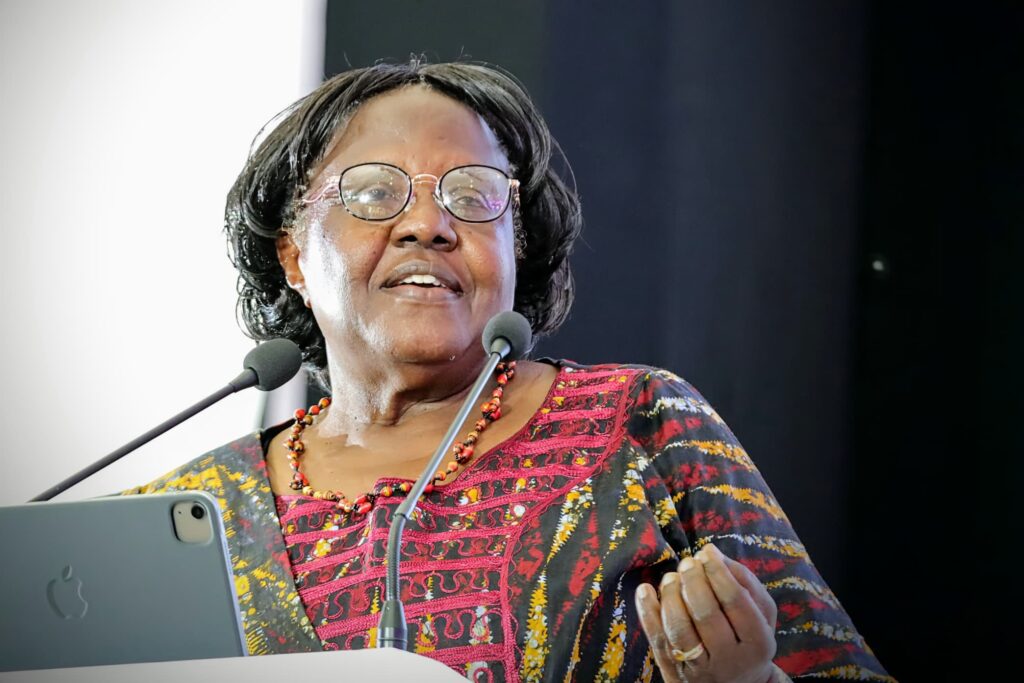
This is why in Uganda under our teams who we call combat commanders given this mental, philosophical and cultural battles for unity around trade in Africa, are making interventions at three levels we hope to drive this change:
At the market level, we insist on research where we don’t have data, better preparation, trade representation, trade hubs, on customer level engagement, retail level engagement etc. The Serbia and Balkans model as you will hear later today (thank Trade Representative Bratislav Stoiljkovic represented by Boris and Bragan), has processing at home of some 6000MTs of our coffee as part of the 40,000MTs we import as replacement, retail outlets, including restaurant level distribution, storage level, technology for tracking products and transactions and assembly of equipment. We combine this with Bilateral negotiations on rates and air travel. This is to help our firms and products get to regional and international value chains in a sequenced manner so we can learn what to do. Markets can also get the taste of our products and in the end invest at source in Uganda. There is no way to do this differently because we would need more than USD2bn to invest in global promotion, money we don’t yet have.
At Firm level, we meet companies as they are not often what we expected them to be. We are a young country and continent with few large size businesses. We got to be conscious of the fact that large size businesses that we compete against were initially supported by their governments in foreign markets. We too are building a model to support these SMEs through export orders, working capital and some grants. We have partnered with a fund called Uganda Exim Ltd and I hope the team is here to speak later about this. The fund is in its early stages and has given one grant so far but hope by end of October, more loans and grants at very low rates will be given. The Fund now has more than 46 applicants and it is building capacity to serve export businesses better. In the month of November, we have two grants for DET imports in Detroit Michigan and in Chicago once they demonstrate orders have been picked and warehousing and distribution set. They can also apply for low fee loans at Ug Exim.
At Government level, we work on a Standards and compliance authority for our food safety (Food & Agriculture Authority) to match what FDA and other international protocols require, all under one roof. Our people are here to speak more on this later. We continue to work on infrastructure support on land, air and at sea to get better competitive rates for exporting firms. We also continue to make inroads for bilateral trade negotiations with a number of countries. This October, we will be in the southern Balkans and in DRC for these negotiations on off take of products and launch more facilities. The US/Uganda firms here can supply these markets too. This is why my brother Anni Bassey (Nigeria Trade Representative is here) and Justin Katoto (DRC Trade Representative is here too). Please reach out to them on this. Let us see what we can do together!
Our target for the US partners is twofold:
First, at industrial level, for investment in the various fields, education, cultural exchange and tourism. We think we can reduce the cost of industrial inputs and service skilling from outside if we work with the US firms. Industrial inputs or intermediate goods into Africa stand at:
Europe – 26%
China 15%
USA 7% (small)
Sadi Arabia 4%
India 3%
Africa 16%
Africa remains small in sourcing industrial intermediate goods amongst each other yet 45% of all our value-added goods are sold within Africa! This can be grown to 70% and Africa will industrialize and learn to work together as regional blocs and continent.
The Second need is Value addition to both food and minerals, refrigeration, transportation and firms’ partnerships. Just think of one sector of animal feeds. To produce 1m tons of fish as Uganda target, we require 800,000MTs of maize and 600,000MTs of soya. These will in the process, give us 100,000MTs of cooking oil we are importing at more than USD80m annually. Who can we get on land, investment, technology and we give supply connection to the two firms that are producing 100,000MTs of fish feeds beginning 2025?
This is the same for fertilizer production for maize. The current 2.3 million acres we use for maize production across the country gives us 1.5tonnes or less, an acre. Simply applying some basic NPK (and there is a firm here for example trying to separate hydrogen from Oxygen using an electrolyzer and add ammonia and even others using animal manure) we could raise to 3.9 tons per acre and earn USD1.7bn a year from maize alone. These projects need skill and capital and this is partly why we look to friends in the US to keep this conversation going. Yes, we need to move our country to the computing age and take advantage of the Generative AI tools and data, but we still have huge competitive advantage on production of food for the world that we aren’t using well. I need some support in this area.
Therefore, given Africa and Uganda is industrializing at a time when global value chains are highly fragmented post covid 19, there is increased protectionism in each country that wasn’t the case in the 1980 and 1990s when nations in the Far east were rising, there is rapid digitalization affecting low value commodities Africa is in, increased levels of sea costs on account of terrorism, threats of war, etc., I would like us to act with wisdom and haste when we have friends in the room who want to buy our products. This is because we face a vastly changed world that asks us for glass jars for fruits into Europe yet we haven’t even started making tins, it puts barriers in the way of our youth scaling their businesses when they give subsidies to the farmers in the west to keep our organic foods out of the market, the US allies become key in the battle for export knowledge and business growth.
Our team and our government will keep up with the following in order to support this work:
Build a pocket of excellence on the matter of trade and exports. We want to strengthen the work done so far and build a Uganda Trade and Exports negotiations center. This will give us a bridge between public sector and the actions you are taking to help us achieve targets on the US and other markets.
Keep directing attention to the layers of complexity of trade and exports with the world. This is so we can create cultural change, a mind shift of sorts to improve our society’s understanding of the exports and manufacturing as a driver to ending poverty. This knowledge once it tips over, it will be a way of life for the next generation just like we see in many Far eastern countries. This is how we can increase production, keep time and build trust and confidence on the markets you are giving us.
Thank you


